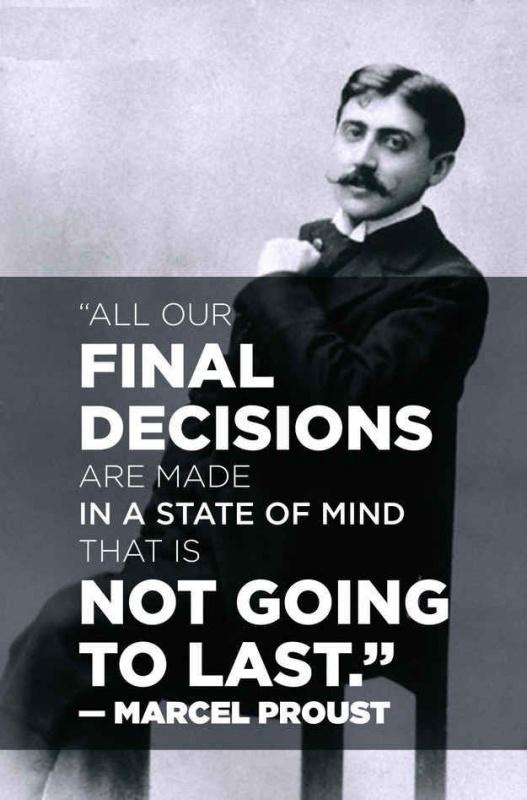All our final decisions are made in a state of mind that is not going to last

All our final decisions are made in a state of mind that is not going to last
Marcel Proust, the renowned French novelist, is perhaps best known for his monumental work, "In Search of Lost Time." In this seven-volume novel, Proust delves deep into the complexities of memory, time, and the human experience. One of the central themes that Proust explores is the idea that all our final decisions are made in a state of mind that is not going to last.Proust believed that our decisions are often influenced by our current emotional state, which is fleeting and subject to change. In the heat of the moment, we may make choices that seem right to us at the time, but upon reflection, we may come to regret them. Proust understood that our emotions can cloud our judgment and lead us to make decisions that are not in our best interest.
Proust's own life was marked by indecision and uncertainty. He struggled with his own emotions and often found it difficult to make definitive choices. In his writing, Proust explores the idea that our decisions are shaped by our past experiences, our desires, and our fears. He believed that our state of mind is constantly evolving, and that what may seem like a final decision in one moment may be subject to change in the next.
Proust's exploration of the transience of our state of mind is reflected in his writing style. His prose is often meandering and introspective, capturing the fleeting nature of memory and emotion. Proust's characters are complex and multi-dimensional, reflecting the shifting nature of human consciousness.












 Friendship Quotes
Friendship Quotes Love Quotes
Love Quotes Life Quotes
Life Quotes Funny Quotes
Funny Quotes Motivational Quotes
Motivational Quotes Inspirational Quotes
Inspirational Quotes